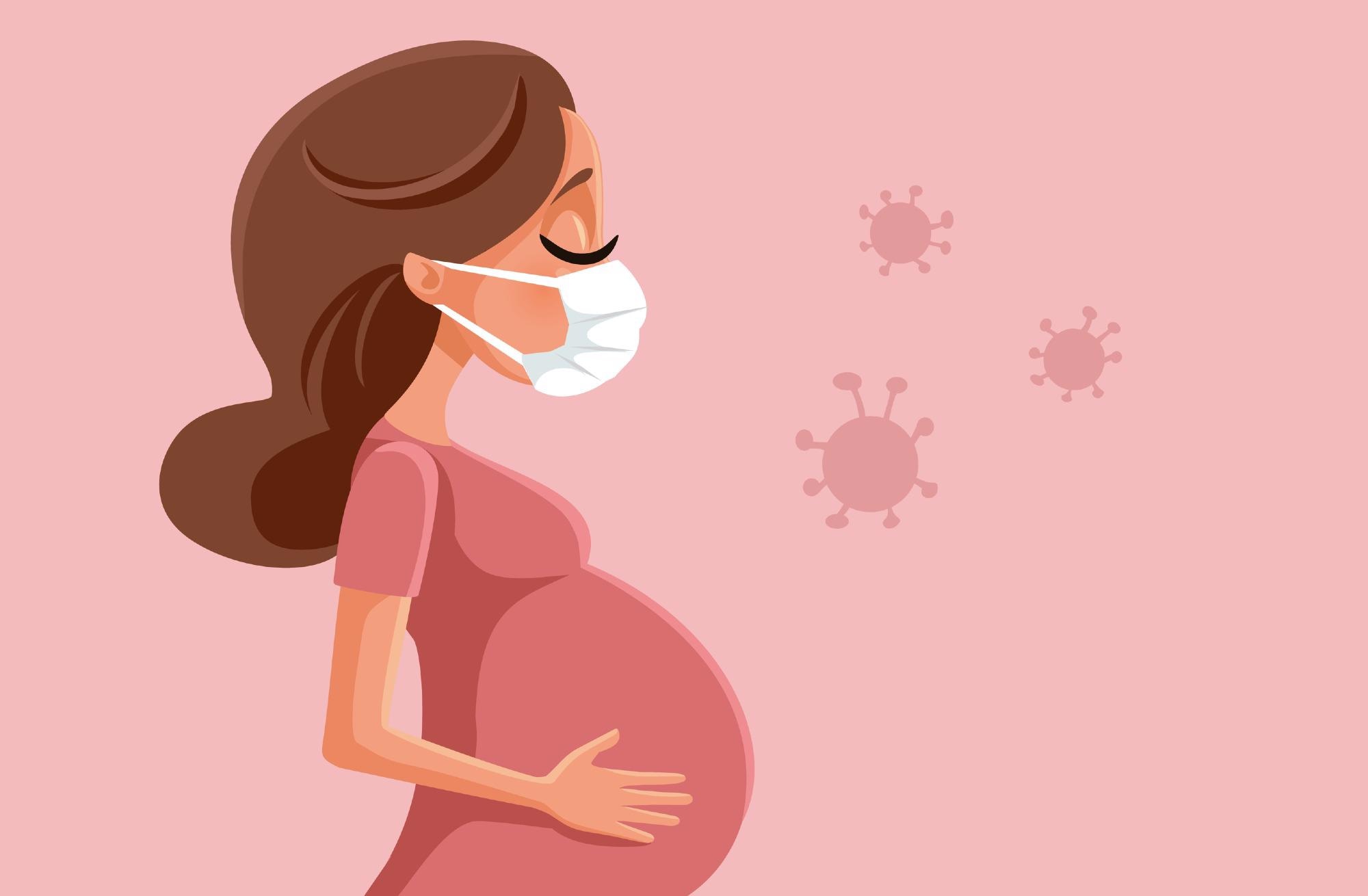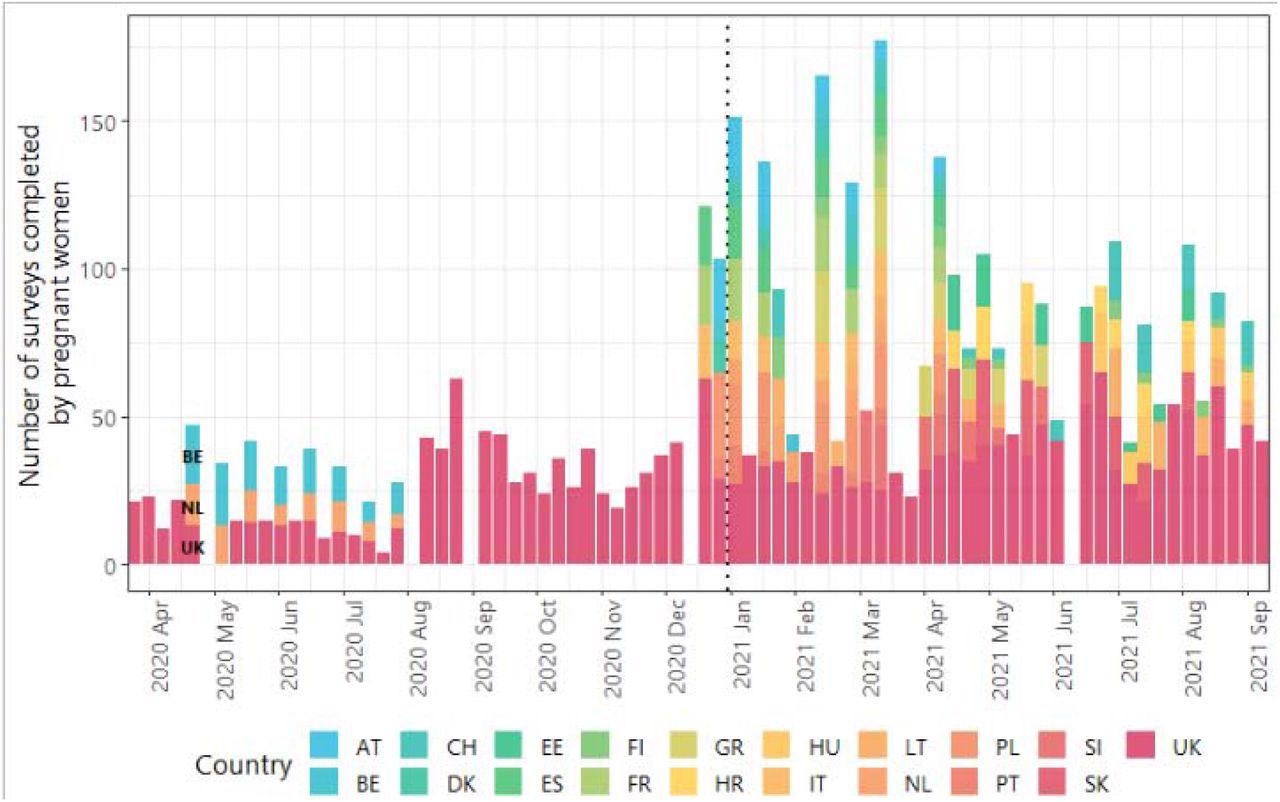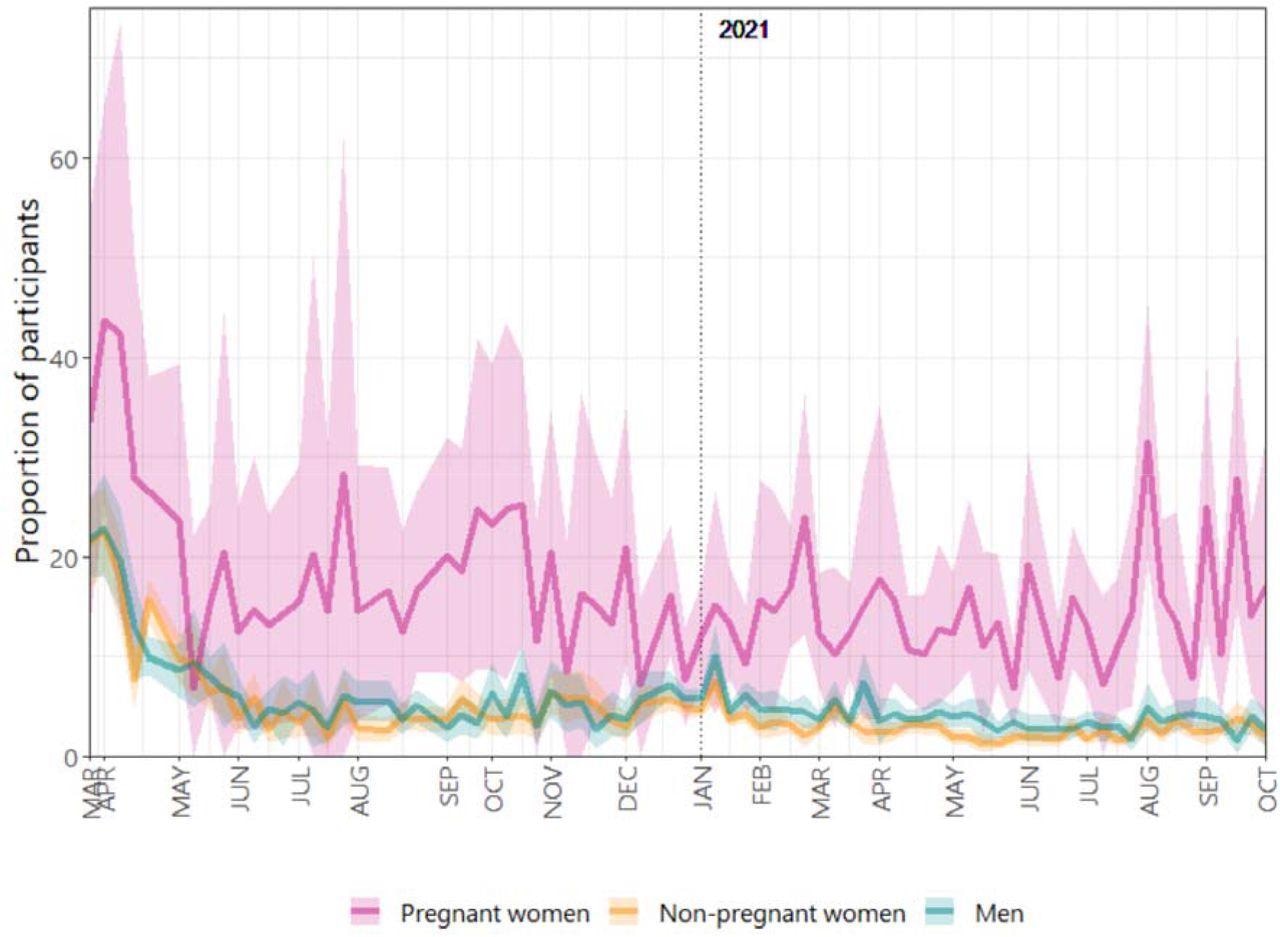In a recent study posted to the medRxiv* pre-print server, researchers from the London School of Hygiene and Tropical Medicine and Hasselt University surveyed the social contact patterns and coronavirus disease 2019 (COVID-19) vaccine uptake among women from 19 European countries pregnant between March 2020 and September 2021.
 Study: Pregnancy during COVID-19: social contact patterns and vaccine coverage of pregnant women from CoMix in 19 European countries. Image Credit: Nicoleta Ionescu / Shutterstock
Study: Pregnancy during COVID-19: social contact patterns and vaccine coverage of pregnant women from CoMix in 19 European countries. Image Credit: Nicoleta Ionescu / Shutterstock

 This news article was a review of a preliminary scientific report that had not undergone peer-review at the time of publication. Since its initial publication, the scientific report has now been peer reviewed and accepted for publication in a Scientific Journal. Links to the preliminary and peer-reviewed reports are available in the Sources section at the bottom of this article. View Sources
This news article was a review of a preliminary scientific report that had not undergone peer-review at the time of publication. Since its initial publication, the scientific report has now been peer reviewed and accepted for publication in a Scientific Journal. Links to the preliminary and peer-reviewed reports are available in the Sources section at the bottom of this article. View Sources
Background
It is important for pregnant women to receive more psychosocial support to cope with their emotions and stress during this critical childbearing phase. However, due to reduced social contact during the severe acute respiratory syndrome coronavirus 2 (SARS-CoV-2)-induced pandemic in 2020, pregnant women had to face additional challenges further worsened by the apprehension of contracting COVID-19.
About the study
In the present study, researchers used data from an online social contact survey, CoMix, which recruited and followed up with nationally representative samples from 19 European countries. It gathered information regarding the awareness, social contacts, and health conditions of the adult population over the course of the COVID-19 pandemic. In addition, they asked the study participants about their risk perception and COVID-19 vaccination status.
The team analyzed data from pregnant women between 18 to 49 years and age-matched non-pregnant women and men who participated in the CoMix study. They included all the study participants for seven to 10 survey rounds before exclusion.
The researchers used a clustered bootstrap to compute the mean proportion of individuals in quarantine and vaccination coverage by gender and pregnancy status. They used a generalized additive mixed model (GAMM) to calculate the mean adjusted contacts reported in different settings, including home, work, and other social settings. The researchers modeled the reported social contacts using a log link function based on the assumption that they followed a negative binomial distribution.
The team retrieved the non-pharmaceutical interventions (NPIs) data measured by an overall stringency index (SI) implemented during the OxCGRT project. SI provides a systematic way to quantify the strictness of lockdown policies that restricted social behaviors, with values ranging from zero (least stringent restriction) to 100.

Number of surveys completed by pregnant women over time by country between 23 March 2020 and 12 September 2021 Not all countries are labelled. The dashed line represents 1st January 2021.
Study findings
The authors made 4,129 observations from 1,041 pregnant women and found that they made fewer contacts than non-pregnant women. Accordingly, around 15 to 20% of pregnant women remained in quarantine during most of the study period. Contrastingly, less than 20% of non-pregnant women and men reported being in isolation before May 2020 and only 5% since May 2020. Around 45-50% of pregnant women considered COVID-19 a serious threat throughout the study period, whereas ~ 25% of non-pregnant people did so since August 2020. Clearly, the risk perception was higher among pregnant women; however, compared to men, non-pregnant women were more worried that they might spread the disease.

Proportion of participants who report being in isolation or quarantine due to COVID-19 with 95% bootstrap-based confidence interval.
The authors observed a sharp increase in face-mask use, i.e., ~70% among all groups in August 2020. The usage remained consistent in all the groups until it declined to 60% in July 2021. Throughout the study, pregnant women had a slightly lower mean number of daily contact than non-pregnant women of the same age (3.6 vs. four). However, they made more social contacts outside the households than non-pregnant women (0.7 vs. 0.5-0.6). The social contacts also varied with the strictness of the NPIs and settings. Pregnant women generally made the least contacts outside the home setting at all levels of NPIs. Conversely, they reported more contacts than non-pregnant people at all levels of restrictions, as indicated by SI values.
Between January and April 2021, COVID-19 vaccine coverage was higher in pregnant women than in non-pregnant women. Different European countries had different policies regarding COVID-19 vaccines based on pregnancy status, and its uptake was low among pregnant women even where the vaccine was available. Moreover, studies have frequently raised concerns about the safety and side effects of COVID-19 vaccines on the fetus. By May 2021, vaccination in non-pregnant women surpassed pregnant women.
As data about the safety and effectiveness of COVID-19 vaccines in pregnancy becomes available, the authors strongly recommended vaccinating pregnant women as a priority. Simultaneously, policymakers should devise strategies to address vaccine hesitancy among pregnant women, including post-vaccination surveillance and mother and infant follow-up.
Conclusions
There is a heightened need for social contact or in-person support during the pregnancy. The NPIs implemented during the COVID-19 pandemic reshaped social behavior that adversely affected pregnant women. Moreover, there was an environment of constant confusion that hindered them from receiving COVID-19 vaccination. Overall, the study data highlighted the urgent need to acknowledge and provide precise and clear information that could reassure pregnant women during the ongoing COVID-19 pandemic.

 This news article was a review of a preliminary scientific report that had not undergone peer-review at the time of publication. Since its initial publication, the scientific report has now been peer reviewed and accepted for publication in a Scientific Journal. Links to the preliminary and peer-reviewed reports are available in the Sources section at the bottom of this article. View Sources
This news article was a review of a preliminary scientific report that had not undergone peer-review at the time of publication. Since its initial publication, the scientific report has now been peer reviewed and accepted for publication in a Scientific Journal. Links to the preliminary and peer-reviewed reports are available in the Sources section at the bottom of this article. View Sources
Journal references:
- Preliminary scientific report.
Pregnancy during COVID-19: social contact patterns and vaccine coverage of pregnant women from CoMix in 19 European countries, Kerry LM Wong, Amy Gimma, Enny S Paixao, CoMix Europe Working Group, Christel Faes, Philippe Neutels, Niel Hens, Christopher I Jarvis, W. John Edmunds, medRxiv pre-print 2022, DOI: https://doi.org/10.1101/2022.06.01.22275775, https://www.medrxiv.org/content/10.1101/2022.06.01.22275775v1
- Peer reviewed and published scientific report.
Wong, Kerry L. M., Amy Gimma, Enny S. Paixao, Daniela Paolotti, André Karch, Veronika Jäger, Joaquin Baruch, et al. 2022. “Pregnancy during COVID-19: Social Contact Patterns and Vaccine Coverage of Pregnant Women from CoMix in 19 European Countries.” BMC Pregnancy and Childbirth 22 (1). https://doi.org/10.1186/s12884-022-05076-1. https://bmcpregnancychildbirth.biomedcentral.com/articles/10.1186/s12884-022-05076-1.